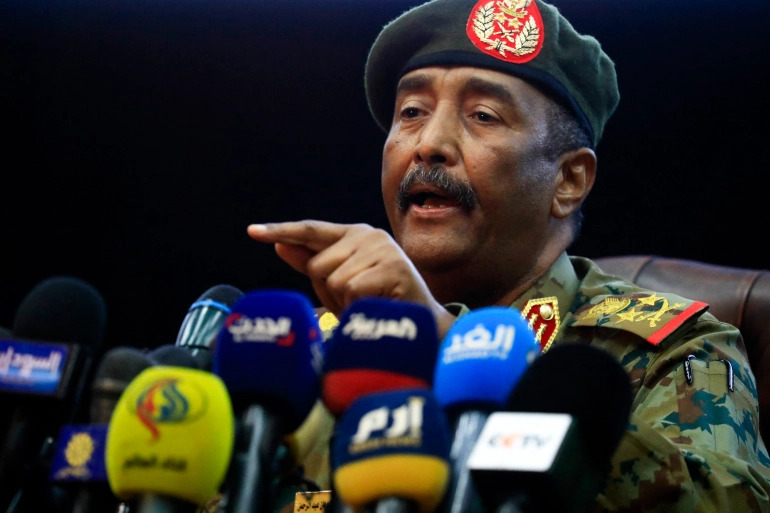On November 11th, in a sign that Sudan’s woes are far from over, the head of the junta, General Abdel Fattah al-Burhan reappointed himself as interim leader.
Anti-coup protesters in the east of Sudan’s capital, Khartoum, reacted to al-Burhan’s move by blocking roads and burning tires. Pictures posted on social media appeared to show similar protests in other parts of the city.
The Sudanese Professionals Association (SPA), a leading protest movement, said: “Burhan and his council’s decisions apply only to themselves, they have no legitimacy and will be met only with contempt and resistance.”
General Burhan retained his deputy Mohamed Hamdan Dagalo, as well as other senior military leaders to the positions they held before the October 25th coup.
The 14-member transitional council also includes civilians but none from the political coalition that was in power before the coup.
Sudan’s ousted Information Minister Hamza Balloul termed the new move an extension of the coup and said the people “can defeat [it] and continue the transition”.
So far, 13 members have been appointed, including three senior army figures and five civilians. A civilian representative for the Eastern Sudan region has yet to be named as negotiations are still ongoing. Such an appointment is particularly sensitive. In early October, demonstrators from the Beja tribe in the country’s east blocked roads around Port Sudan and forced Red Sea ports to close, disrupting oil and food supplies directed to Khartoum.
The new council comes into existence despite increasing domestic and international pressure to reverse the coup.
The UN envoy in Sudan, Volker Perthes, says the army chief’s unilateral appointment of the council makes it increasingly difficult for the country to return to constitutional order.
UN spokesperson Stephane Dujarric described al-Burhan’s latest move as “very concerning” and said Secretary-General Antonio Guterres wanted to “see a return to the transition as quickly as possible.”
Since the October 25 coup, over 100 government officials and political leaders have been detained, as well as a large number of protesters and activists.
At least 14 anti-coup protesters have been killed due to excessive force used by the security forces, according to Sudanese doctors and the United Nations.
Sudan has been in the midst of a fragile transition since a 2019 pro-democracy uprising led to the removal of longtime autocrat Omar al-Bashir.
The 11-member Sovereign Council was first formed in the summer of 2019 after the military signed a power-sharing deal with pro-democracy forces.
In an interview with Al Jazeera, al-Burhan said he was committed to handing over power to a civilian government, promising not to participate in any government that comes after the transitional period.
But the pro-democracy movement SPA led a two-day civil disobedience and strike campaign earlier this week and has promised to continue protesting until a civilian government is established.
MORE ON THE TOPIC:




